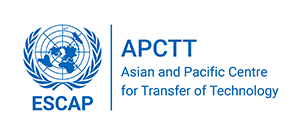Enzymatic Production of Hydrogen from Biomass
Researchers at Virginia Tech, Oak Ridge National Laboratory (ORNL), and the University of Georgia, USA have developed a novel method using multiple enzymes as a catalyst for the direct, low-cost production of hydrogen from biomass. Applying the principles of synthetic biology, the researchers use a combination of 13 enzymes to form an unnatural enzymatic pathway to completely convert polysaccharides—e.g., starch and cellulose—and water into hydrogen at a yield higher than the theoretical yield of biological hydrogen fermentations. Starch is a high energy-density carrier, with 14.8 H2-based mass%. (The DOE long-term target for hydrogen storage is 12 mass%.) The enzymes, when added to the biomass solution, use the energy in the polysaccharides to break the water up into carbon dioxide and hydrogen. A membrane bleeds off the carbon dioxide and the hydrogen is used by a fuel cell to create electricity. The water byproduct is recycled for the starch-water reactor. Laboratory tests confirm that it all takes place at low temperature—30° C—and atmospheric pressure. The researchers estimated the cost of hydrogen production using their method of approximately $2/kg. The stoichiometric reaction is: C6H10O5 (l) + 7 H2O (l) ? 12 H2 (g)+6 CO2 (g) The overall process is spontaneous and unidirectional because of a negative Gibbs free energy and separation of the gaseous products with aqueous reactants. The vision is for the ingredients to be mixed in the fuel tank of a car. A car with an approximately 12-gallon tank could hold 27 kg of starch, which is the equivalent of 4 kg of hydrogen. One kg of starch will produce the same energy output as 1.12 kg (0.38 gallons) of gasoline. For more information, contact Y.-H. Percival Zhang, Ph.D. Assistant professor of biological systems engineering Virginia Tech USA
Sector: Renewable Energy Technologies
Country: India
Area of Application: Renewable Energy
Keywords: Enzymatic, Hydrogen, Biomass
Advantages: Low-cost, novel process for hydrogen production
Environmental aspects: Energy efficiency
Development Status: Commercial Prototype
Legal Protection:
Technical specifications:
Transfer Terms: Consultancy , Technical Services
Target Countries:
Estimated cost (US$):
Upload any relevant document:
Contact Person: APCTT (UNESCAP)
Address: Asian and Pacific Center for Transfer of Technology (APCTT) C-2, Qutab Instituational Area
City: New Delhi
Country: India
Zip/Pin Code: 110016

